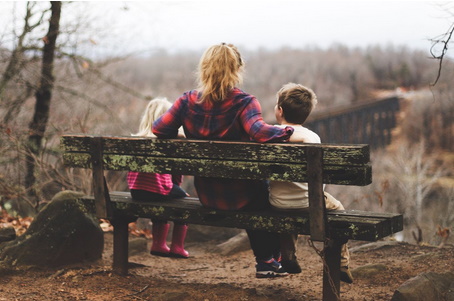How Does Domestic Violence Affect A Child?
- Written by NewsServices.com

Someone's personality and behavior as an adult stems a lot from his childhood experiences. Many adults have problems functioning well in society because of their traumatic experiences back when they were little, and the failure to overcome these struggles haunts them daily.
Children are perceived as innocent and fragile, which makes them an easier target for violence. A single hit, a single slap, a single raise of a hand. All of these might become a healing wound or just an "easy punishment" for grown-ups, but to a small kid who's just beginning to see the world, embedding an undesirable and unpleasant memory they couldn't forget.
Children experiencing domestic violence are prone to physical and mental health problems.
Psychologists, psychiatrists, domestic violence lawyers, and other people who face victims of abuse daily proved plenty of cases where children who have been in a vicious cycle at home or anywhere else display disturbing evidence of post-traumatic behaviors.
Aside from the physical damage professionals see when a child is rescued, they can also observe a display of fear, inability to talk, and tantrums. This shows that the physical pain abusers inflict on these innocent beings leaves a deeper impact than the bruises and scars.
Many studies have shown that adults who fail to overcome their traumas from childhood domestic violence tend to develop unhealthy coping mechanisms and have a negative outlook of the world. They often have commitment issues, trust issues and may even display aggressive behaviors themselves.
Children in abusive households tend to grow up into abusive adults.
As mentioned earlier, the failure to overcome traumatic experiences as a child often leads to adulthood's dark path. As seen in movies and even in statistics, grown-ups who had experienced violence at such an early age are more prone to engage in "displacement" or the action of diverting one's anger from a superior person to a weaker and less capable person or object.
Because these victims couldn't do much to their abusers as a child, they tend to submerge these destructive thoughts and anger at the back of their heads. However, as adults, they suddenly have this distinct sense of "superiority" that validates their inner abused child. When it gets threatened by a being seen as someone "lesser" than them, a child, for example, feels intimidated and be the new abuser instead - displacing their long-stored anger to them.
Abused children commonly display self-destructive thoughts and actions.
Children may feel awful about the violent mistreatment and condemn themselves. Domestic abuse harms and negatively affects how a child sees himself. They often do not engage in activities or receive excellent marks, have fewer kids around them than others, and are more likely to participate in troublesome scenarios.
Kids who are subjected to domestic abuse suffer psychological, social, and physical trauma, which can impact their social and cognitive development. Some children outgrow their sense of empathy with everyone else. Others feel alienated, unable to develop relationships as readily owing to social awkwardness or a lack of understanding of what is desirable and what's frowned upon.
As an adult, a single act of violence might be something you get over with. But to an innocent child with a lot of hope for the world, this single act of violence might be the one thing that shuts their hopes down and kills their dreams to be a healthy adult.





